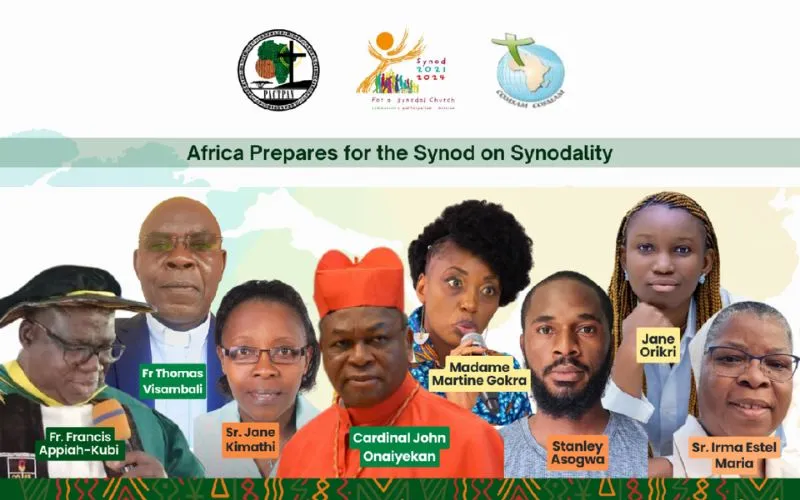He said that service in the Catholic Church should not be looked at as the responsibility of ordained ministers alone.
“If we talk of ministries in plural, we must find the place for the ministry of the lay faithful in the world,” he said, and added, “Ministry means service, and shouldn’t be restricted to the ordained ministers.”
“It is important that the lay faithful embrace their activities in the world as service of the kingdom here on earth,” the Nigerian Cardinal said.
Other participants at the 13th session of the palavers that Catholic Theologians in Africa have organized to deepen the understanding of the Synthesis Report that came out of the October 2023 session of the Synod on Synodality agreed that the synodal Church by nature, such as the one in Africa, is a family of God.
In his presentation at the palaver, Fr. Francis Appiah Kubi, who serves as Head of the Department of Religious Studies at Kwame Nkrumah University of Science & Technology reiterated Cardinal Onaiyekan’s sentiments, noting that the African paradigm of the “Church family of God” promotes the idea of paternity, filiation and fraternity.
(Story continues below)
This way, the Ghanaian Catholic Priest, who serves as the first regional President of Regional Union of Priests of West Africa (RUPWA) said, no one is superior in the Church in Africa.
“The recognition of God as father overthrows any relationship of superiority and competition in the Church,” Fr. Appiah said.
He continued, “The only attitude which corresponds to the will of God is that of sons and daughters, children born from God participating in the divine filiation of the only son, Christ. It not only transcends differences, ethnic and tribal, but particularly unites us as one family in the Church working together.”
Fr. Appiah spoke extensively on the forms of leadership and exercise of authority that Africa needs to enhance a synodal Church where everyone is listened to.
In his address, the Secretary General of the Regional Episcopal Conference of West Africa (RECOWA), Fr. Vitalis Anaehobi, noted that synodality is not a new experience in the African Church, and that local churches have always embraced co-responsibility.
The member of the Clergy of Nigeria’s Catholic Diocese of Nnewi, who was among the delegates of the October 2023 Synod on Synodality session in Rome, said that it is through co-responsibility that local churches across Africa have made immense progress.
“In Nigeria, for instance, every Parish has a pastoral council where all decisions are made. The parish Priest does not make the overall decision. If he has any project, he must go to the council and have the project listened to before any decision is made,” Fr. Anaehobi said, adding that the similar structures are manifest at the Diocesan level where Bishops work together with representatives of all parishes to come up with decisions.
Fr. Bede Ukwuije, a Professor at Duquesne University where he also serves as Vice Chair underlined the need to reflect on the collaboration among various groups of the local Churches in Africa, especially the participation of the Laity.
He said that Catechists are key in evangelization in his native country of Nigeria and are some of the “most respected” people in the Church in the West African country.
The member of the Congregation of the Holy Spirit (Spiritans/Holy Ghost Fathers/CSSp.) said that the Church in Nigeria is enriched by numerous groups that take charge of animating various projects.
“The Catholic Men Association in Nigeria, for instance, is very key in leadership. They just concluded their meeting in August where they came up with big plans for Church construction projects, the feeding of priests, and other projects. The Church in Africa relies on these groups to grow,” he said.
Acknowledging the existence of what he described as “the temptation for Priests to act as the sole authority”, Fr. Ukwuije said ordained ministers cannot do without lay people.
Agnes Aineah is a Kenyan journalist with a background in digital and newspaper reporting. She holds a Master of Arts in Digital Journalism from the Aga Khan University, Graduate School of Media and Communications and a Bachelor's Degree in Linguistics, Media and Communications from Kenya's Moi University. Agnes currently serves as a journalist for ACI Africa.








